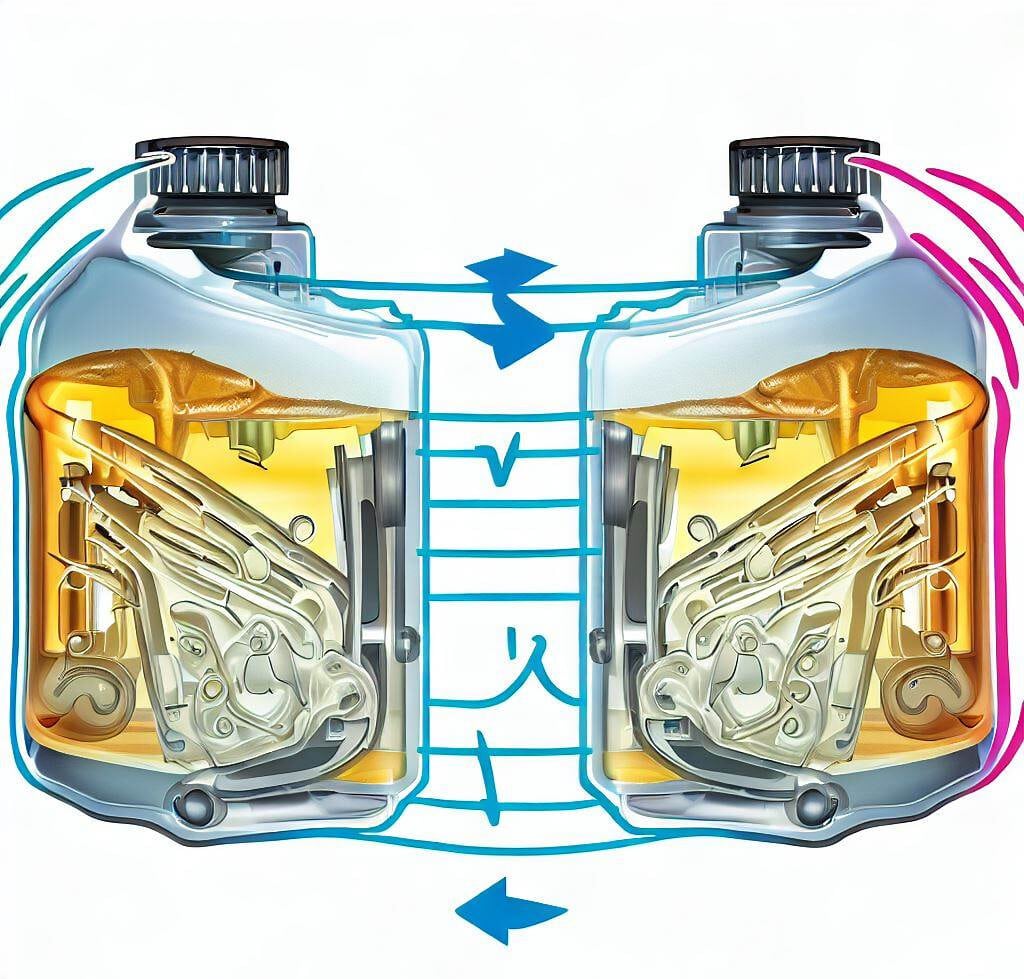When it comes to maintaining your vehicle’s engine, selecting the right motor oil is crucial. The two common motor oil types, 5W-20 and 5W-30, are suitable for older vehicles that require lower-viscosity oils. While they share similarities, their differences lie in their viscosity levels, which can impact engine performance based on your vehicle and driving conditions.
The primary distinction between 5W-20 and 5W-30 oils is their viscosity. Both have a winter rating of 5, but 5W-20 has a weight of 20 in warmer conditions, while 5W-30 is thicker with a weight of 30. 5W-20 flows more easily due to its lower viscosity; however, at 212°F, 5W-30 is slightly more viscous. Therefore, 5W-30 is better suited for hot weather, while 5W-20 is optimal for colder environments.
In this article, we will explore the differences between 5W-20 and 5W-30 motor oils, explain oil viscosity, and help you determine the best choice for your engine.
What Is Oil Viscosity?
The Society of Automotive Engineers (SAE) classifies motor oils based on their viscosity levels, ranging from low (0) to high (60). Viscosity refers to a liquid’s resistance to flow. The lower the viscosity, the thinner the liquid, while higher viscosity liquids are thicker, like honey.
The letter “W” in oil classifications stands for “winter” or low temperatures, indicating how the oil behaves in cold conditions. The viscosity of motor oil can change depending on temperature and weather conditions.
Multi-Grade Motor Oil
Multi-grade motor oils have different viscosity ratings at specific temperatures. For example, 5W-20 oil has a winter viscosity of 5 and a summer viscosity of 20. These oils contain polymers that expand as temperatures rise, maintaining lubrication properties throughout various conditions.

Differences Between 5W-20 and 5W-30 Motor Oils
The primary difference between these two motor oils is their viscosity at operating temperatures. At 100 degrees Celsius, 5W-30 is slightly more viscous than 5W-20. While this increased viscosity can provide better lubrication for engine components, it may also negatively impact fuel economy and horsepower. However, the difference in performance between the two oils is generally minimal.
Fuel Efficiency and Protection
Lower viscosity oils like 5W-20 provide a thinner layer of protection at normal temperatures, resulting in lower friction and improved fuel efficiency. However, this can also mean reduced engine protection compared to higher viscosity oils like 5W-30. Low-viscosity oils can offer better engine performance in colder climates due to their fluidity and quicker heating.
Choosing Between 5W-20 and 5W-30
When selecting the right motor oil for your vehicle, consider factors such as regional climate and manufacturer recommendations. 5W-30 may be the better option for hotter climates due to its higher viscosity and increased engine protection. Conversely, 5W-20 is more suitable for colder climates as it heats up faster and remains more fluid. Both oils are appropriate for regions with mild climates.
Let’s see the main differences between 5W-30 and 5W-20 of Castrol GTX motor oil:
| Characteristics | Castrol GTX 5W-30 High Mileage Engine Oil | Castrol GTX 5W-20 High Mileage Engine Oil |
|---|---|---|
| SAE Grade | 5W-30 | 5W-20 |
| API Service | SN Plus | SN Plus |
| Flammable | No | No |
| Motor Oil Type | Conventional | Conventional |
| Maximum Operating Temperature (°C) | 180 | 180 |
| Maximum Operating Temperature (°F) | 356 | 356 |
| Minimum Operating Temperature (°C) | -35 | -35 |
| Minimum Operating Temperature (°F) | -31 | -31 |
| Pour Point (°C) | -39 | -48 |
| Pour Point (°F) | -38 | -54 |
| Flash Point (°C) | 200 | 200 |
| Flash Point (°F) | 392 | 392 |
What Is Better: 5w20 or 5w30?
In seeking the best oil for your car, several factors must be considered. Though both these oils have approximately the same level of protection provided, they still differ in their viscosity index. If you dwell in a hot region, 5w30 is most appropriate as it functions better at high temperatures and protects your motor more efficiently.
However, 5w20 is a better option for a cold climate as it’s more fluid and heats up faster. Both oils are appropriate if you live in a region with a mild climate.
Can You Mix 5w20 and 5w30 motor oils?
While mixing these motor oils is generally safe for engines designed to use either grade, doing so can potentially strain and wear the engine faster if it isn’t designed for the higher viscosity oil. Additionally, using the wrong oil type may void your vehicle’s warranty, so it’s essential to consult your owner’s manual before mixing oils.
Can 5w30 be used instead of 5w20?
Both 5W-20 and 5W-30 oils can be appropriate for high-mileage engines; however, following your vehicle manufacturer’s recommendations is crucial. Using 5W-30 oil in an engine designed for 5W-20 oil may pose a risk to the engine’s health and longevity.
Is 5w20 Oil Good for High Mileage?
For high-mileage vehicles, always follow the manufacturer’s recommendations found in your owner’s manual. If 5W-20 is specified, use it regardless of your vehicle’s mileage. While additives and other oil variants may claim to improve performance, it’s crucial to research their compatibility with your vehicle before purchasing.
To Sum It Up
In conclusion, understanding the differences between 5W-20 and 5W-30 motor oils is essential for optimal engine performance and protection. Both oils have their advantages, with 5W-20 being ideal for colder climates and 5W-30 performing better in warmer conditions. By considering factors such as regional climate and vehicle manufacturer recommendations, you can make an informed decision and ensure your engine’s longevity and efficiency.


Hey Dan. I have a Question. I have a Jeep Commander 2007 3.7v6. Now its mileage goes 140,000. The oil cap and manual says and recommend to use a 5w20. Can I change to a 5w30? I live in NC, Franklin.
Hi, Steve.
Your Manufacturer says: Lubricants which do not have both, the engine oil certification mark and the correct SAE viscosity grade number should not be used.
So, as You said 5W20 is perfect.
As for me, I can tell you that using a 5W-30 for your vehicle after 140,000 would be even better and I’m pretty sure it won’t cause any problems.